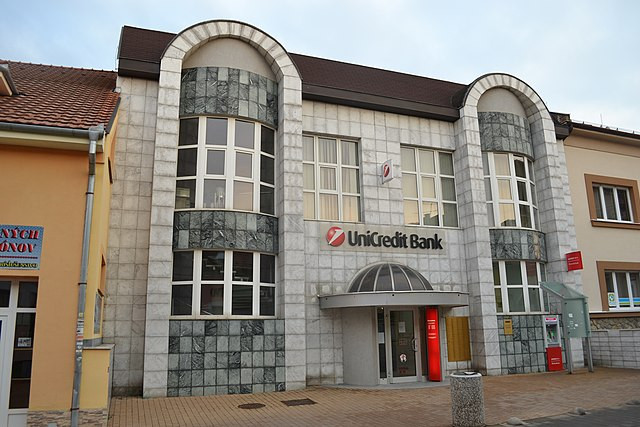Italy's UniCredit has announced a significant increase in its stake in Germany's Commerzbank, moving its holding to nearly 21% and applying to increase its ownership to as much as 29.9%. This bold move by UniCredit comes at a time when European banks are under pressure to consolidate and compete more effectively on the global stage. The Italian lender's move underscores the importance of cross-border cooperation within the European banking sector, an area that has often been fragmented compared to the U.S. market.
UniCredit, led by CEO Andrea Orcel, revealed on Monday that it had acquired additional shares in Commerzbank through financial instruments, which allowed the bank to boost its stake without yet triggering full regulatory approval. Orcel, who has long been known for his expertise in orchestrating major banking mergers, has been positioning UniCredit to play a larger role in European banking consolidation. "UniCredit believes that there is substantial value that can be unlocked within Commerzbank, either stand-alone or within UniCredit, for the benefit of Germany and the bank's wider stakeholders," the bank said in its statement.
The move comes shortly after UniCredit's acquisition of a 9% stake in Commerzbank, with half of that shareholding bought directly from the German government. The Italian bank now holds 21%, making it the largest private shareholder in Commerzbank. The German state remains a key player with a 12% stake, having injected €18.2 billion into the bank during the 2008 financial crisis to keep it afloat.
Despite UniCredit's increase in its stake, Commerzbank's share price initially fell by 0.8% following the announcement, while UniCredit shares dropped by 2% in early trading. Investors are cautiously watching how this development will unfold, as the European Central Bank (ECB) and German regulators must still approve UniCredit's request to increase its holding to 29.9%.
The ECB's regulatory thresholds are strict, requiring approval for share ownership that crosses 10%, 20%, and 30% thresholds. UniCredit has already filed its paperwork with Germany's financial regulatory authority, BaFin, and the ECB will have up to 90 days to rule on the request. Should UniCredit be granted permission, the Italian bank would solidify its position as the largest shareholder in Commerzbank.
UniCredit's use of derivatives to secure the additional 11.5% stake without immediately taking possession of the shares is seen as a strategic move to hedge its position. "The physical settlement under the new financial instruments may only occur after the required approvals have been obtained," UniCredit stated. This approach gives the bank flexibility in deciding whether to increase its holding further or to exit the investment if necessary.
The German government, which has been a major stakeholder in Commerzbank since the 2008 bailout, expressed its preference for the bank to remain independent. In a statement last Friday, government officials emphasized that Commerzbank's strategy is focused on maintaining independence, and the state would continue to support the bank's trajectory in that direction.
However, UniCredit's CEO Andrea Orcel has made it clear that his firm is not pursuing an aggressive takeover. Orcel emphasized that any move would require broad agreement and cooperation with Commerzbank's management and stakeholders. "We would not have moved unless we knew we were welcome, and we will not act aggressively," Orcel told reporters last week. He also noted the trust that the German government has placed in UniCredit, as evidenced by its willingness to sell part of its stake to the Italian bank earlier this month.
UniCredit's move has sparked hopes among analysts that it could prompt further consolidation within the European banking sector, which has been criticized for being overly fragmented. Cross-border mergers and acquisitions are viewed as a key solution to creating stronger, more competitive European banks. Italy's Foreign Minister Antonio Tajani praised UniCredit's strategy, saying that "the European Union has a single market, and being pro-European only in words leaves something to be desired."
The timing of UniCredit's actions comes amid political upheaval in Germany, where the coalition government continues to struggle with internal divisions. This political uncertainty, along with the rise of the ultra-conservative Alternative for Germany (AfD) party, could make it more difficult for the government to form a unified response to UniCredit's advances. Analysts suggest that this political disarray might offer UniCredit an opportunity to navigate the complexities of acquiring a larger stake in Commerzbank with fewer obstacles.
UniCredit's long-standing presence in Germany, where it has operated for nearly 20 years, adds to its strategic positioning in this potential consolidation. The bank stressed the importance of a strong banking union within Europe, saying it is vital for the continent's economic success. Orcel's ambitions to build Europe's biggest bank through this acquisition could mark a significant shift in the region's banking landscape.





